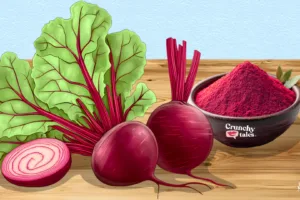Sip Away Your Menopause With Herbal Tea
There’s nothing as refreshing and relaxing as a cup of herbal tea. Especially when those loose leaves are also able to add a bit of comfort to our night sweats or hot flushes.
Going through the menopause is part of life’s natural rhythm but could be also frustrating. For many women it’s not easy: hormonal changes can create discomfort, including loss of sex drive, weight gain and mood changes. Although herbal teas might not be a definite solution, they could be a good option in supporting the body through this process, alleviating the symptoms of menopause.
Menopause Tea, Anyone?
Your diet, lifestyle changes, and over-the-counter therapies such as herbal teas are considered natural ways to ease the discomfort. Here are some of the leafy superheroes listed by the North American Menopause Society believed to help women in menopause:
Korean Ginseng
Research has shown that Korean Ginseng may help to reduce hot flashes and night sweats in menopausal women. In particular, the Ginseng root is a Chinese medicinal ‘adaptogenic’ herb, which is a herb that may promote resistance to external and internal stresses and may improve your physical and mental function. It may be used for relief of menopausal symptoms, stress, fatigue, physical exhaustion and loss of stamina. It is said to heighten your vitality and concentration and improve your sexual function and arousal.
Black Cohosh Root
For centuries, Native North American women have used black cohosh for menopausal symptoms. This herb has received quite a bit of scientific attention for its possible effects on hot flashes. It can have an impact on the hormonal balance of the body, making it useful to combat mood swings and stress brought about by the menopause.
Red clover
It is one of the most widely researched herbs for menopausal health. It contains phytoestrogens (plant-based female hormones) called isoflavones, which can have oestrogen-like actions in the body. Red Clover’s leaves and flowers may be beneficial for hot flushes, but evidence for its effectiveness is conflicting, due to varying formulations and dosages. Some research suggests it may be more effective if you are postmenopausal (after menopause) rather than perimenopausal (around the time of menopause).
Dong Quai
It has been used in Traditional Chinese Medicine to treat gynecologic conditions for more than 1,200 years. It is believed to balance and regulate estrogen levels in women going into menopause. Some ladies believe it is useful for hot flushes, but overall the evidence is not very supportive.
Valerian
Valerian root has health benefits that include treating insomnia, anxiety, headaches, and stress. It’s also been an option for women entering menopause due to its ability to reduce hot flashes. It has been shown to improve the quality of sleep in postmenopausal women, but may take up to four weeks of regular use to have an effect.
St John’s Wort
Traditionally it has been used for menopausal symptoms of anxiety, irritability, insomnia and depression. It can be useful for hot flushes, too. A recent review suggests St John’s wort, alone or combined with other herbs, may be significantly better than placebo in the treatment of menopausal symptoms. It is particularly effective when combined with black cohosh to decrease hot flushes and improve mood.
What Doctors Say
Women have commonly used medicinal herbs to manage menopausal symptoms and improve their overall quality of life. However, according to a narrative review reported in the Drug and Therapeutic Bulletin (DTB) of the British Medical Journal, the use of herbal medicines to treat menopausal symptoms is widespread, but there is a lack of licensed products available on the market. They say the efficacy and safety of herbal medicinal products are generally under-researched, and there is limited information on potential herb-drug interactions. Always buy organic herbal teas, and opt for caffeine-free varieties. Consult with your doctor before using tea to treat menopause symptoms, since some teas may have adverse effects on prescription medicines.




